3 Symptoms of a Bad ABS Module (and Replacement Cost)
Anti-lock braking systems prevent dangerous lockups, but the ABS module that controls them can fail over time. Recognizing symptoms of a faulty ABS module is key to maintaining safety.
This guide will cover warning signs of module failure and how to address them. With knowledge and preventative care, ABS can continue providing life-saving performance.
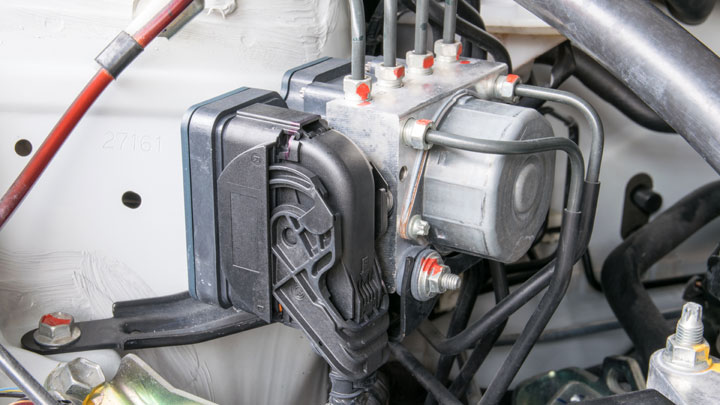
What Is an ABS Module?
An ABS module is a microprocessor computer integrated into the electrical system of all newer vehicles.
This module is responsible for monitoring and operating a vehicle’s anti-lock brake system, which regulates hydraulic pressure distributed to the brake assemblies at each respective wheel end, thereby preventing lockup in the event of a panicked or emergency stop.
The ABS module itself relies upon input from various sensors to facilitate the various functions with which it is tasked. Some of the most valuable of these inputs come from each wheel speed sensor. These sensors detail the speed at which each wheel spins, in relation to one another, thereby allowing the ABS module to detect a lockup condition.
A vehicle’s ABS module also runs system self-tests during every “key-on” cycle, and logs system-related fault codes as necessary. Additionally, this module relays pertinent data to other vehicle control modules, such as the PCM, by way of the CAN-BUS communication network.
Where Is the Module Located?
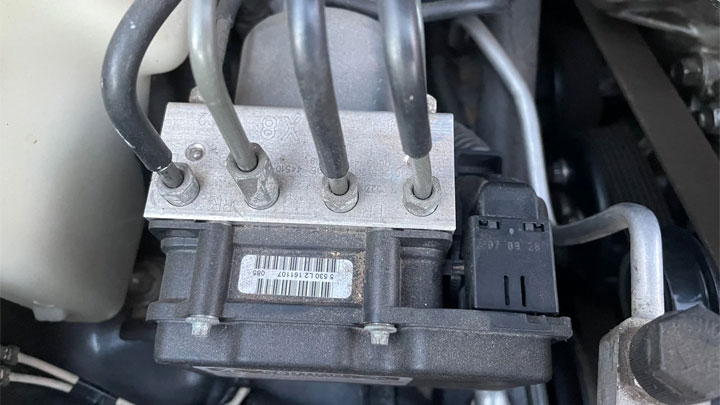
The ABS module on most vehicles is located within the engine compartment, though some, alternatively can be found along a vehicle’s frame rail.
More often than not, the ABS module can be found bolted within the driver’s side subsection of the engine compartment, within close proximity of the ABS block itself. In fact, on some vehicles, this module can be found bolted directly to the ABS block itself.
Bad ABS Module Symptoms
When an ABS module fails or is in the process of failing, a number of secondary symptoms can be presented. By recognizing these symptoms, you can remedy the issue at hand, in a much more expedited fashion than would otherwise be possible.
The following are several of the most common symptoms associated with a faulty ABS module.
#1 – Illuminated ABS Light
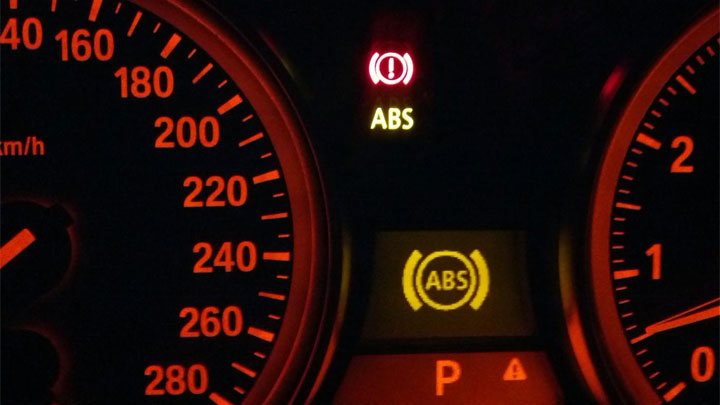
Since a vehicle’s ABS system runs system self-checks with every keystroke, pertinent faults are stored rather quickly as they arise.
Once a fault of this type has been stored, an ABS warning light is illuminated on a vehicle’s dash, thereby warning a motorist of the issue at hand.
#2 – Locking Brakes
Occasionally, an ABS module can fail in a way that causes inadvertent brake applications, many of which take place in a rather aggressive manner such as your brakes locking up when driving.
Even more concerning is that these instances are often intermittent in nature, and occur without warning during normal braking.
#3 – Changes In Required Braking Effort
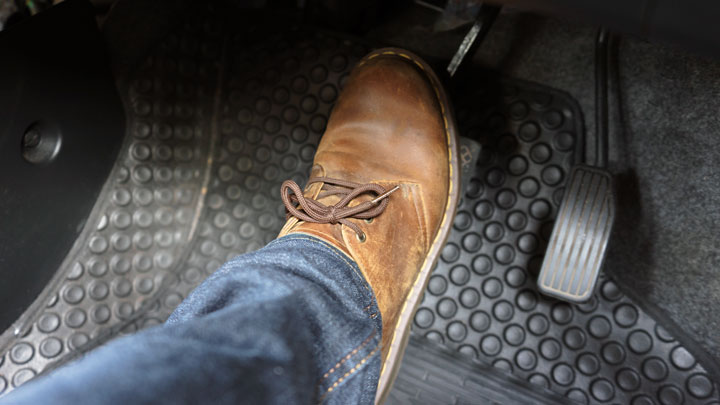
If you notice that your vehicle suddenly requires more or less brake pedal effort to come to a stop, your ABS module might be to blame.
This often occurs when the ABS circuit finds itself unable to accurately regulate hydraulic braking pressure like it once could.
Is It Safe to Drive With a Faulty ABS Module?
While a vehicle can be driven with a faulty ABS module, doing so for extended periods of time is not suggested.
This stems from the fact that ABS function will cease, in the event of an ABS Module failure. Therefore, a vehicle will be left without the use of a valuable safety feature that it was originally designed to offer.
This being said, you will still have the use of your standard hydraulic brakes, in the event of an ABS module failure. This will allow you to continue your drive, arriving safely at a conviction point for eventual diagnosis and repair.
However, relying upon this knowledge to facilitate the long-term operation of a vehicle without proper ABS function is not advised.
What Can Cause the ABS Control Module to Fail?
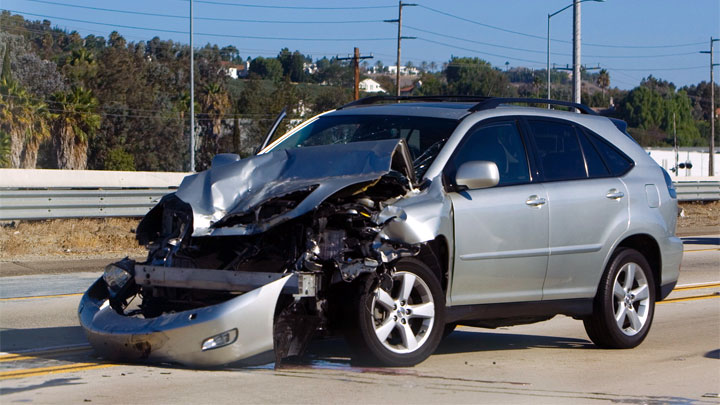
Though ABS control modules are extremely hearty by nature and often last for the life of a vehicle, they do occasionally fail for various reasons.
One of the major factors related to ABS module failure is impact. These modules are often compromised during collisions, even when they do not outwardly show signs of damage.
In instances where an impact was not to blame for ABS failure, water intrusion, corrosion, or electrical overload are key culprits.
Simply put, whenever an ABS module is subject to conditions outside of the norm, its lifespan can be considerably compromised. Even more troubling, is the fact that failure can come months or even years after this contamination begins.
ABS Module Replacement Cost
Best places to order parts? See: 19 Best Online Auto Parts Stores
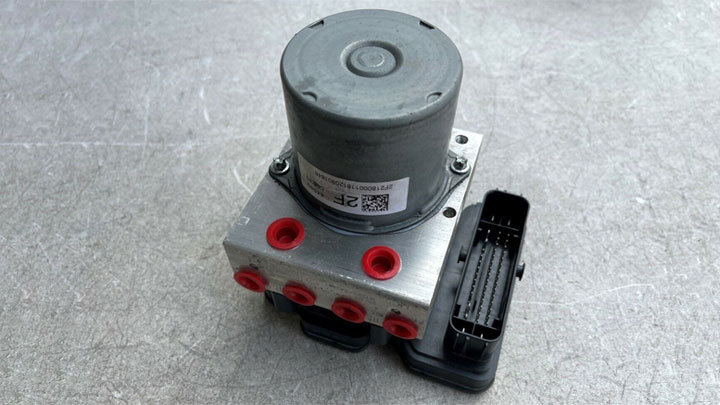
The cost of replacing a vehicle’s ABS control module can vary significantly from one make and model to the next. However, it is safe to say that the replacement of such a key and complex component is not on the cheaper side of automotive repairs, especially considering today’s inflated parts costs.
Generally speaking, one can expect to pay between $600 and $1,200 to have their vehicle’s ABS module replaced. The middle of this range tends to be fairly accurate for the bulk of domestic vehicles on the road today.
In almost every case, the cost of parts is significantly greater than that of labor, when completing such repairs.
Does the Module Have a Fuse?
The vast majority of vehicles on the road today come equipped with an inline circuit within the electrical side of the ABS system. This fuse allows power to be supplied to the ABS module itself and serves as a circuit protection device in the event of circuit overload or unanticipated grounding.
In most cases, a vehicle’s ABS fuse is located within the power distribution block, in the general vicinity of all other critical fuses and relays. The integrity of this fuse can be easily verified through the use of a 12-volt test light, or through a simple continuity test with an analog or digital multimeter.
Can I Replace the Module Myself?
In most cases, ABS module replacement is best left to professionals, although some with a reasonable degree of mechanical aptitude might find success in such endeavors. However, it is important to realize that some ABS modules can require a substantial degree of effort to remove and install, depending upon the specific manufacturer’s design.
In some cases, it might also be necessary to flash a new ABS module with the use of a professional-grade scan tool. Alternatively, at least a few manufacturers require an ABS bleed procedure to be completed after replacing the ABS module itself. Again, this often requires the use of an expensive, pro-grade diagnostic scanner.
Can an ABS Module Be Repaired?
Depending upon the failure in question, it might be possible to repair your vehicle’s faulty ABS module. However, doing so is a matter for those intimately familiar with the inner workings of such a module itself. Therefore, such a matter is not advised to be undertaken by the average DIY mechanic.
There are a number of companies that will repair your vehicle’s ABS module for a fee. However, having this done involves removing the ABS module in question, before sending it off to a qualified repair entity.
This might be a route worth considering if you can spare the vehicle that is to be repaired for several weeks, while its faulty ABS module is repaired and mailed back.
- Car Temperature Gauge Stopped Working? (Here’s Why) - Apr 15, 2024
- Ignition Coil vs Coil Pack (What’s the Difference?) - Apr 8, 2024
- Windshield Wipers Won’t Turn Off? (Causes and What to Do) - Apr 5, 2024
